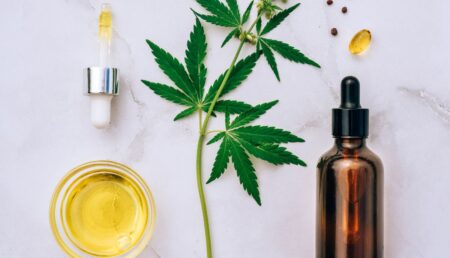
When you hear someone say I need to get my tooth pulled, don’t panic! There are plenty of times when the dentist can save your tooth, even if it has an abscess or fracture. There are also times when the dentist won’t be able to help, and you need to focus on saving the rest of your teeth. We’ve outlined the top circumstances when it’s too late to save a tooth in this article – and provided some tips on how to best handle each one so you can protect your smile!
This year, preserve your teeth
Tooth decay and gum disease are serious problems. If you’re not careful, your mouth can get infected and you might have to undergo an oral surgery. That’s why this year, make sure you brush your teeth twice per day and floss at least once per day. If the pain persists, see your dentist as soon as possible. They will perform an x-ray on the affected area of your mouth to determine if there is any damage to the nerves in your jaw.
If there is no nerve damage, you’ll need a root canal procedure where they remove part of the damaged tissue from inside the tooth. They will then seal up that area with a filling or permanent crown over top of that hole in order for it to heal properly.
If there is nerve damage, then unfortunately there isn’t much that can be done about the damaged tooth other than removing it entirely and replacing it with a false one that looks exactly like your other ones. The only time when saving teeth becomes less practical or worth doing would be if they are very badly decayed or significantly cracked into pieces so they cannot support themselves anymore.
Start flossing
The best time to start flossing is when you first get your teeth. For children, parents can help them learn how and when to do this from the beginning. However, as people get older and have more damage, they may have difficulty with the technique. Flossing requires dexterity and coordination which may become difficult for those with arthritis or other conditions.
If you don’t take care of your teeth now, they will only get worse and cost more to fix in the future. Ask your dentist about what you can do now at home that might help extend the life of your teeth.
The sooner you address any dental issues, the less expensive they will be in the long run!
Stop smoking
Quit smoking. Smoking causes teeth to yellow and makes them more likely to decay. Smoking also causes the production of saliva, which contains acid that can eat away at your enamel, making teeth even more susceptible to decay. Quitting smoking can help reverse these effects and make your smile look healthier. The sooner you quit, the better off you’ll be. Your dentist may prescribe an antibiotic or fluoride treatment to try to stop the infection from spreading and causing permanent damage to your teeth and gums. These treatments might work if they’re given early enough before an abscess forms under the gum line.
Eat right
If you have lost a tooth, there are many ways to preserve the remaining teeth. The best thing you can do for your teeth and oral health is brush and floss at least twice a day. A good diet that includes plenty of fresh fruits and vegetables will also help keep the teeth strong.
If you’ve neglected your teeth for an extended period of time, such as if you’re unable to brush due to illness or lack of access, see your dentist as soon as possible. If you’re experiencing pain, sensitivity or swelling in any part of your mouth, see your dentist right away.
See the dentist regularly
Regular check-ups are essential for maintaining healthy teeth and gums. In some cases, though, an emergency visit becomes necessary. If you suspect that you may have an infection or need root canal treatment, call your dentist right away. Your dentist will be able to provide further advice on how to proceed based on your symptoms. In many cases, even if you have an infected tooth and the pain has become severe, your dentist may still be able to treat the problem with antibiotic therapy or by removing the infected area of the tooth.
Use fluoride rinse every day
If you have a cavity or are starting to show signs of decay, you should start using a fluoride rinse every day. Fluoride rinses can help prevent cavities from getting worse and also make the surface of your teeth stronger, which can help keep your teeth from breaking down in the future. Fluoride rinses come in both liquids and pastes that you brush onto your teeth. Be sure to follow instructions on how often and how long to use the product for best results.
Don’t snack between meals
Tooth decay can lead to many different complications, and one of them is the loss of teeth. The best time to prevent this from happening is when you are still young and have all your permanent teeth – otherwise, the cost of saving your teeth could be very expensive. Here are some ways that you can prevent tooth decay:
Don’t eat sugary foods or drinks (including fruit juice) between meals.
Don’t share utensils with someone who has bad dental hygiene.
Brush twice a day for two minutes each time.
Do not fall asleep with mouth open
If you fall asleep with your mouth open, you may experience dryness. Your saliva production slows down and the moisture in your mouth evaporates, which can lead to problems like bad breath, cavities and tooth decay. You should try not to do this for long periods of time as it can cause irreversible damage.
If you have oral piercings or are wearing braces, it’s possible that these can get caught on your teeth while sleeping. This could lead to problems like pierced gums or broken brackets or wires in braces. If any of these things happen while you’re sleeping, they might be difficult or impossible to fix because you’ll need someone else’s help. If this is the case, do not sleep with your mouth open until the problem has been solved!
Stay away from night time acid reflux.
If you have trouble sleeping due to acid reflux, try sleeping in an upright position. Try keeping your head up by propping it on pillows or using a pillow with neck support. Avoid eating or drinking anything within two hours of bedtime. If your symptoms persist, talk to your dentist about medication options.
Final Thought
While there are some exceptions, the general rule of thumb is that if you wait more than 12 hours after an injury or infection, the tooth may have already sustained irreversible damage. If you would like more information about dental care, be sure to contact your dentist for all your dental care needs!













